What are the stages of lung cancer?
Like other cancers, lung cancer progresses through 4 stages. Sooner the diagnosis, better is the treatment approach and faster is the recovery.
Based on the tumor location, involvement in the lymph nodes and spreading, TNM (tumor, node, metastasis) staging of the tumor is performed. By staging the lung cancer, the doctor gets a better idea as to –
- What is the size and location of cancer?
- Is the tumor spreading (also called as tumor metastases), if so, spread to lymph nodes?
- What is the prognosis for the patient – chances of complete recovery and survival?
Stages of non-small cell lung cancer:
Non-small cell lung cancer is the most common types of lung cancer, accounting for 85% of total lung cancers.
Stage 0 – Cancer at this stage is still at the origin of DNA error. They are just an outgrowth that is not cancerous yet. Usually, found in the top layers of the cell lining of the airways. The tumor has not spread to lymph nodes or distant organs.
Stage 1 – Here, cancer has invaded into the deeper layers. However, the cancer is still benign. The size of the tumors may vary from 1 cm to 4 cm that may clog airways partially, invade visceral pleura, or bronchus. Yet, they have not spread to lymph nodes or distant tissues. Doctors suggest removal of the tumor and nearby lymph nodes.
Stage 2 – Stage 2 cancer has grown tissues of visceral pleura, main bronchus and its branches, chest wall, parietal pleura, phrenic nerve and membranes surrounding the heart. The stage 2 tumors vary in size but do not exceed 7 cm across. However, cancer has not touched the lymph nodes yet. The treatment usually involves surgery and adjuvant chemotherapy (treatment after surgery aimed at trying to destroy any remaining cancer cells with or without radiation therapy).
Stage 3 – Stage 3A cancer marks the spread of cancer into the lymph nodes, the gateway to move into different parts of the body. Through stage 3B and 3C, cancer progressively spreads through more number of lymph nodes and invades the nearby organs but not far away organs. Treatment options are similar to that of stage 2.
Stage 4 – At this stage, cancerous tissues can be of any size, may or may not have spread to lymph nodes. Cancer may have spread to the other lung, and fluid around lungs, or heart, tumor outside the chest or distant part of the body – such as liver, lungs, bones, or brain. The last stage 4B marks the spread of cancer into more than one part of the body.
Staging of small cell lung cancer:
Limited stage: Small cell lung cancer is now limited to one of the lungs and nearby lymph nodes.
Extensive stage: Small cell lung cancer has spread to lymph nodes and distant organs.
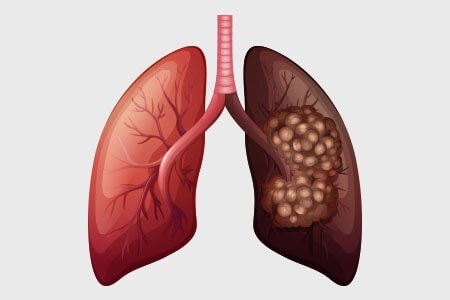




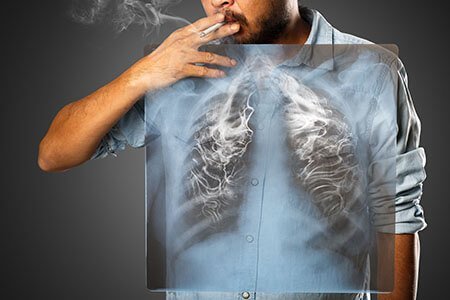
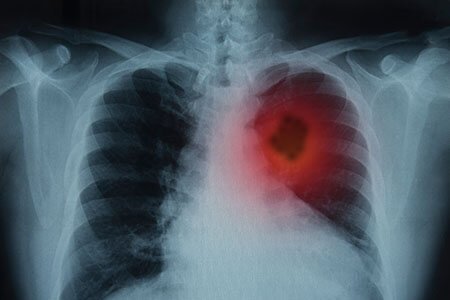
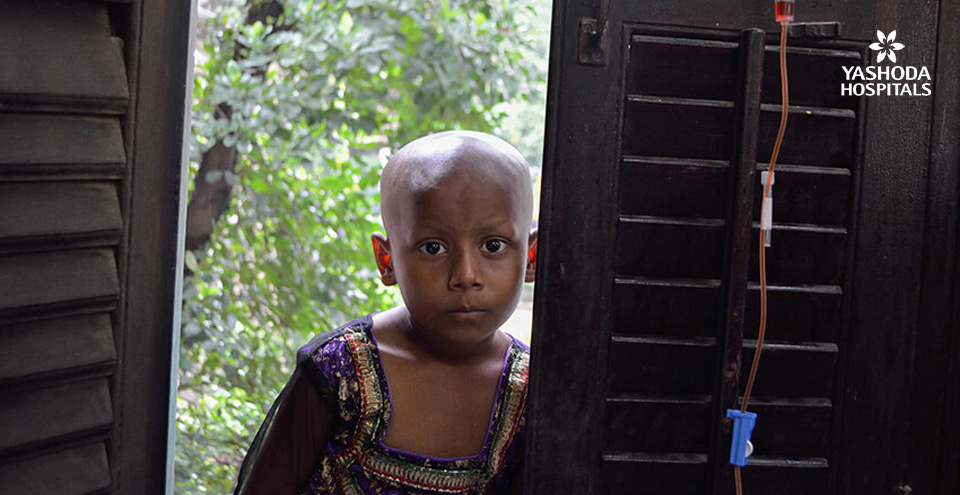
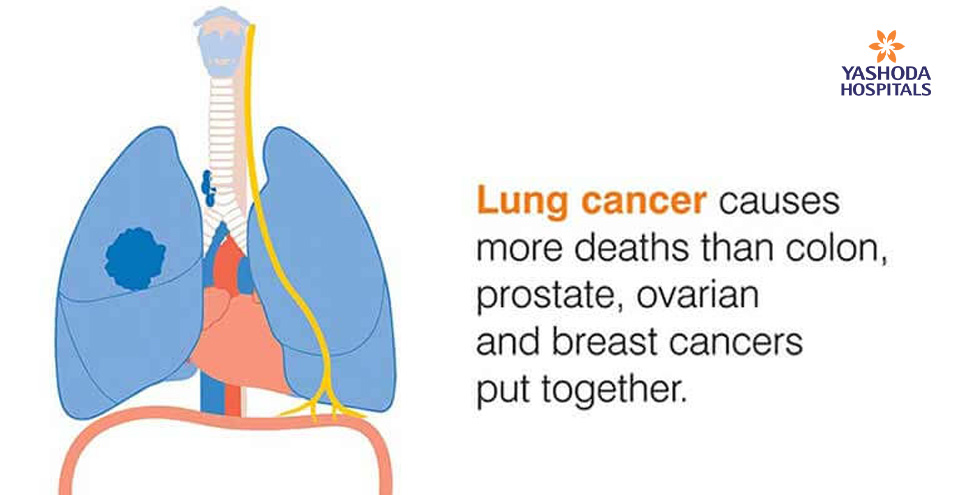
 Appointment
Appointment WhatsApp
WhatsApp Call
Call More
More